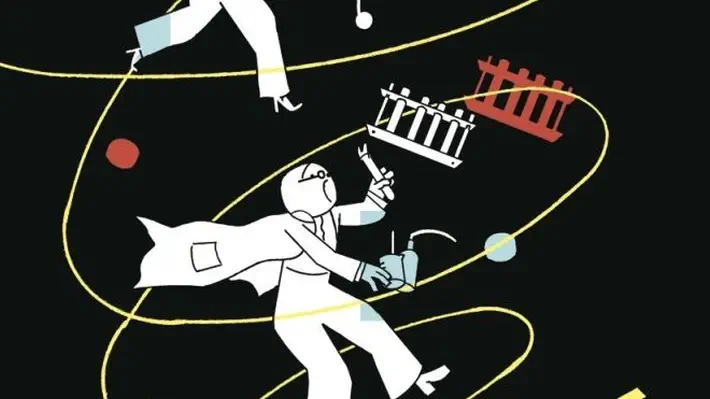 NEWYORKER
NEWYORKERHow Good Is My Doctor?
The difference in effectiveness between treatment centers can be enormous. Historically, patients haven’t known this. So what happens when they find out?
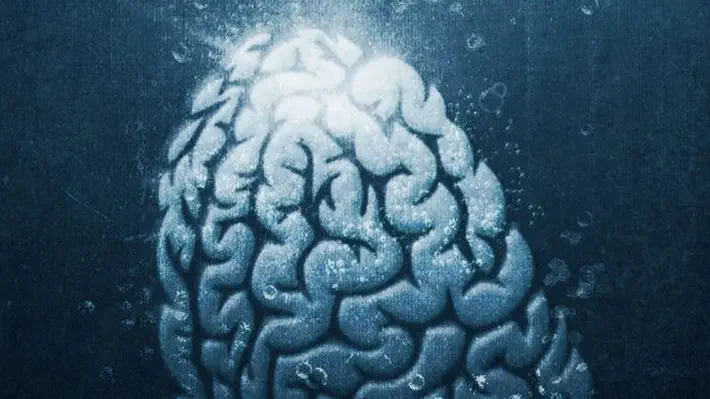 NEWYORKER
NEWYORKERBacteria on the Brain
A brilliant neurosurgeon offered an untested therapy to dying cancer patients. Was it innovation or overreach?
 NEWYORKER
NEWYORKERAlmost Everything in “Dr. Strangelove” Was True
The Soviets did have a doomsday machine, and a rogue American officer could have launched a nuclear attack.
Silicon Valley Has an Empathy Vacuum
Silicon Valley fails to take into account the human consequences of its technological wizardry. // Silicon Valley seems to have lost a bit of its verve since the Presidential election. The streets of San Francisco—spiritually part of the Valley—feel less crowded. Coffee-shop conversations are hushed. Everything feels a little muted, an eerie quiet broken by chants of protesters. It even seems as if there are more parking spots. Technology leaders, their employees, and those who make up the entire technology ecosystem seem to have been shaken up and shocked by the election of Donald Trump.
 NewYorker
NewYorkerIs Capitalism a Threat to Democracy?
The idea that authoritarianism attracts workers harmed by the free market, which emerged when the Nazis were in power, has been making a comeback.
 NEWYORKER
NEWYORKER“A First-Rate Girl”: The Problem of Female Beauty
Many novels fail to meaningfully address the issue of beauty, and, when a novelist does examine beauty more closely, the results are often startling.
 NEWYORKER
NEWYORKERAssassination and the American Language
The U.S. avoids the word “assassination” because such actions are anathema to our national identity. But has a reckoning begun?
 NEWYORKER
NEWYORKERHow Jane Vonnegut Made Kurt Vonnegut a Writer
Kurt Vonnegut knew for sure he wasn’t good enough to be a writer. Then his wife stepped in.
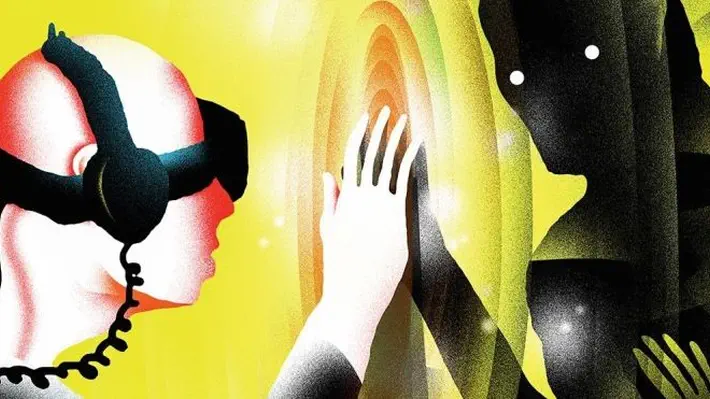 NewYorker
NewYorkerAre We Already Living in Virtual Reality?
A new technology—virtual embodiment—challenges our understanding of who and what we are.
 NewYorker
NewYorkerHow Reality TV Changed the Nature of Delusions
In 2012, a psychiatrist named Joel Gold published a paper in the journal Cognitive Neuropsychiatry describing a trend he had noticed among his patients. In the course of the preceding decade, he had seen a number of young men who believed that they were being watched—that, in fact, their entire lives were being recorded by, and orchestrated for, hidden cameras that followed them at all times. A few of the patients compared their situation to “The Truman Show,” a 1998 movie starring Jim Carrey as a man who discovers that he’s living in an elaborately produced TV program.
 NEWYORKER
NEWYORKERThe Two Lives of Michael Jackson
Having never learned to be a responsible adult, he made terrible choices about how to handle his otherworldly power.
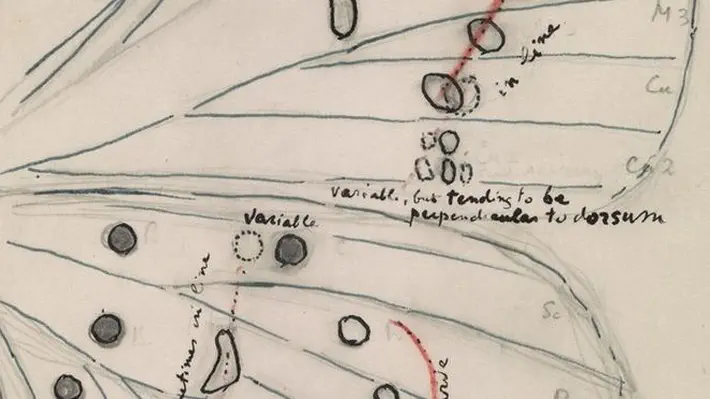 newyorker
newyorkerVladimir Nabokov, Butterfly Illustrator
Vladimir Nabokov began collecting lepidoptera at the age of seven. Throughout a long and protean literary career, his passion for insects remained unwavering. He published his first verses as a teen-ager, shortly before the Russian Revolution; in 1918, he fled St. Petersburg for Crimea, where he surveyed nine species of Crimean moths and seventy-seven species of Crimean butterflies. Two years later, as a first-year student at Cambridge University, he described his observations in a scholarly paper for The Entomologist. In 1940, having written nine novels in Russian and one in English, Nabokov immigrated to New York, where he became an affiliate in entomology at the American Museum of Natural History.
 NewYorker
NewYorkerWhy Walking Helps Us Think
Since at least the time of Greek philosophers, many writers have discovered a deep, intuitive connection between walking, thinking, and writing.
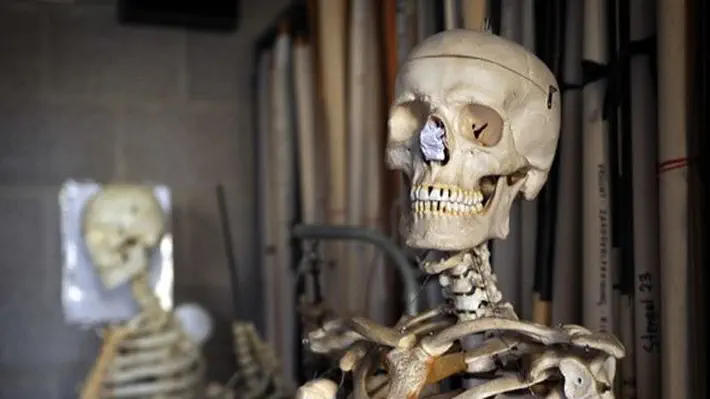 NEWYORKER
NEWYORKERDo Our Bones Influence Our Minds?
The only tangible truth: each thing influences everything in every conceivable way. (Or... actually, let's not limit it to the conceivable.) // In the mid-nineteen-nineties, a young French geneticist and physician named Gerard Karsenty became curious about a mysterious protein, called osteocalcin, that is found at high concentrations in the skeleton. He worked with mice that had been engineered to lack the substance, expecting to find problems with their bones. But their skeletons appeared essentially normal, he says, a result that left him “deeply depressed.”
![New discoveries about the human mind show the limitations of reason. // “The Enigma of Reason” (Harvard) ... point[s] out that reason is an evolved trait, like bipedalism or three-color vision. It emerged on the savannas of Africa, and has to be understood in that context. // Humans’ biggest advantage over other species is our ability to cooperate. Cooperation is difficult to establish and almost as difficult to sustain. For any individual, freeloading is always the best course of action. Reason developed not to enable us to solve abstract, logical problems or even to help us draw conclusions from unfamiliar data; rather, it developed to resolve the problems posed by living in collaborative groups. “Reason is an adaptation to the hypersocial niche humans have evolved for themselves,” Mercier and Sperber write. Habits of mind that seem weird or goofy or just plain dumb from an “intellectualist” point of view prove shrewd when seen from a social “interactionist” perspective.](/img/lead/why-facts-dont-change-our-minds.webp) NewYorker
NewYorkerWhy Facts Don’t Change Our Minds
New discoveries about the human mind show the limitations of reason. // “The Enigma of Reason” (Harvard) ... point[s] out that reason is an evolved trait, like bipedalism or three-color vision. It emerged on the savannas of Africa, and has to be understood in that context. // Humans’ biggest advantage over other species is our ability to cooperate. Cooperation is difficult to establish and almost as difficult to sustain. For any individual, freeloading is always the best course of action. Reason developed not to enable us to solve abstract, logical problems or even to help us draw conclusions from unfamiliar data; rather, it developed to resolve the problems posed by living in collaborative groups. “Reason is an adaptation to the hypersocial niche humans have evolved for themselves,” Mercier and Sperber write. Habits of mind that seem weird or goofy or just plain dumb from an “intellectualist” point of view prove shrewd when seen from a social “interactionist” perspective.
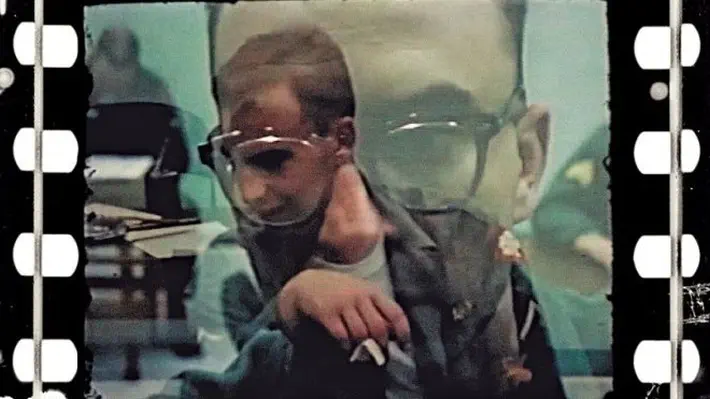 NEWYORKER
NEWYORKEROperation Delirium
Decades after a risky Cold War experiment, a scientist lives with secrets.
